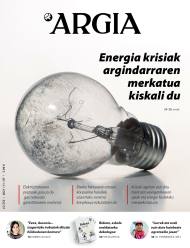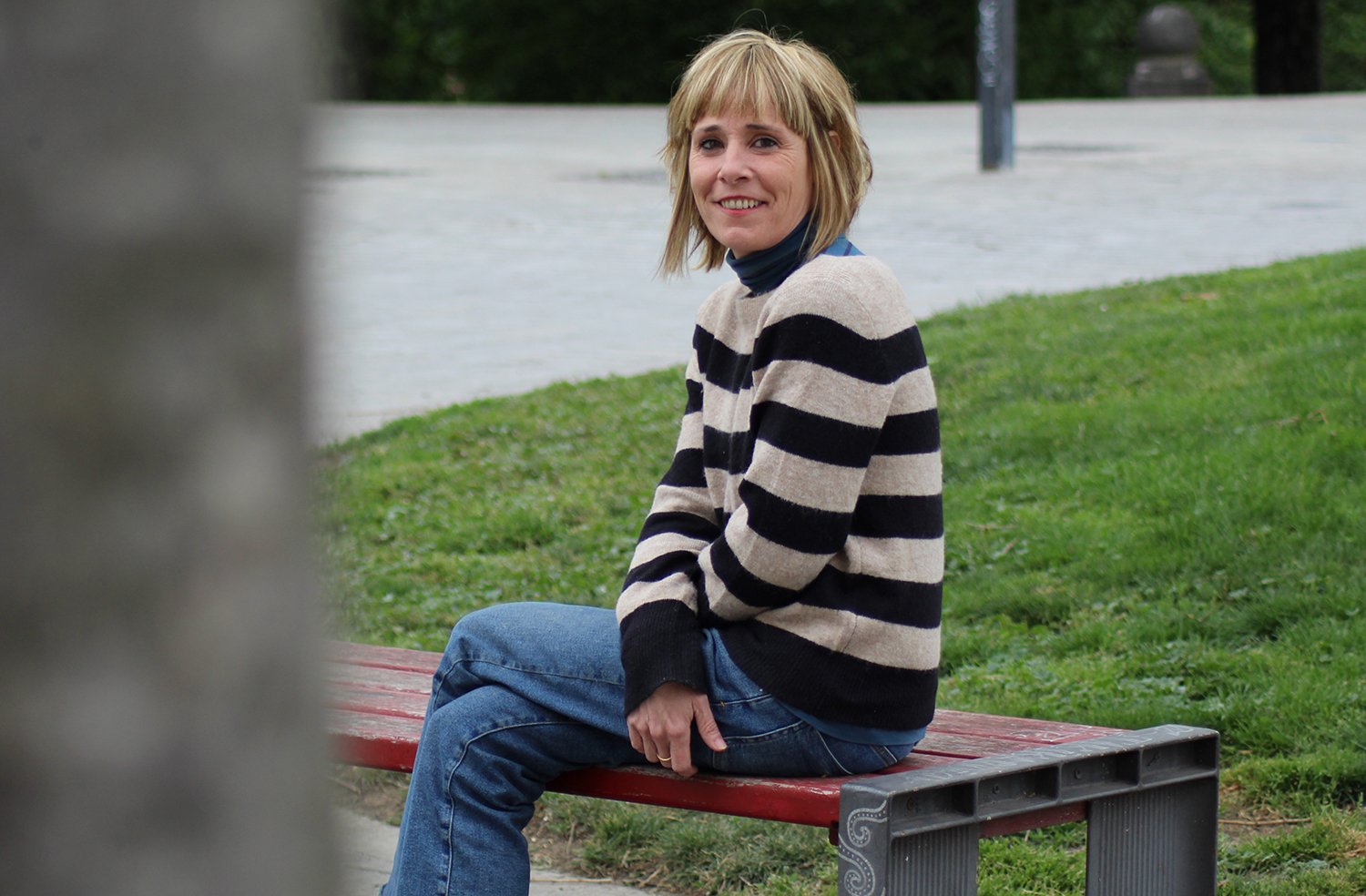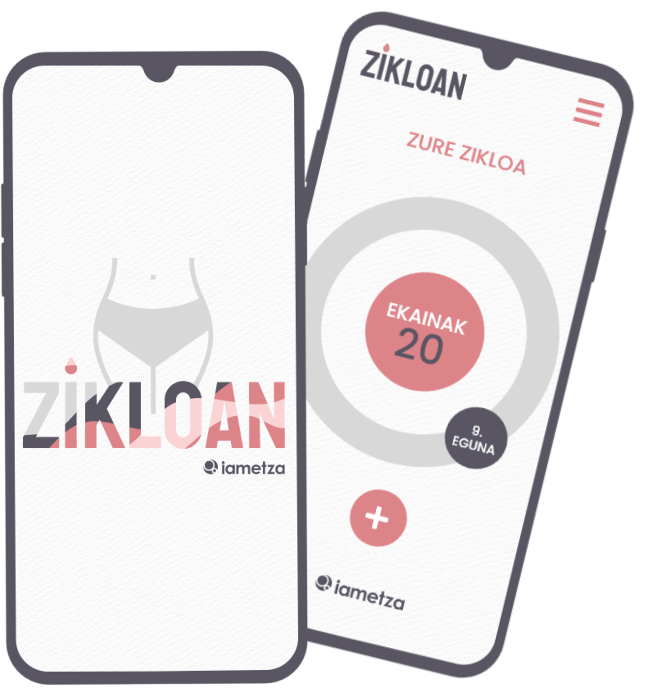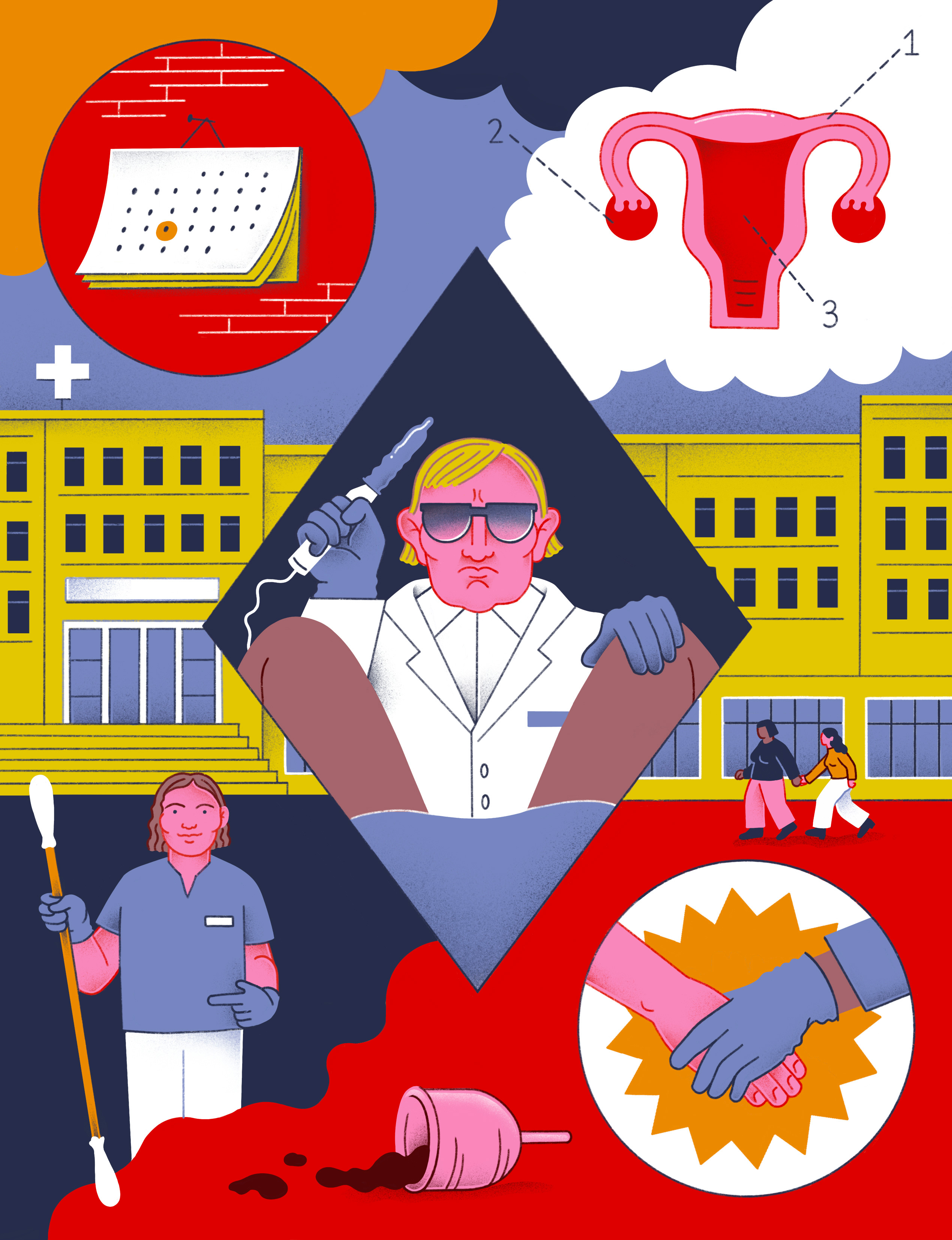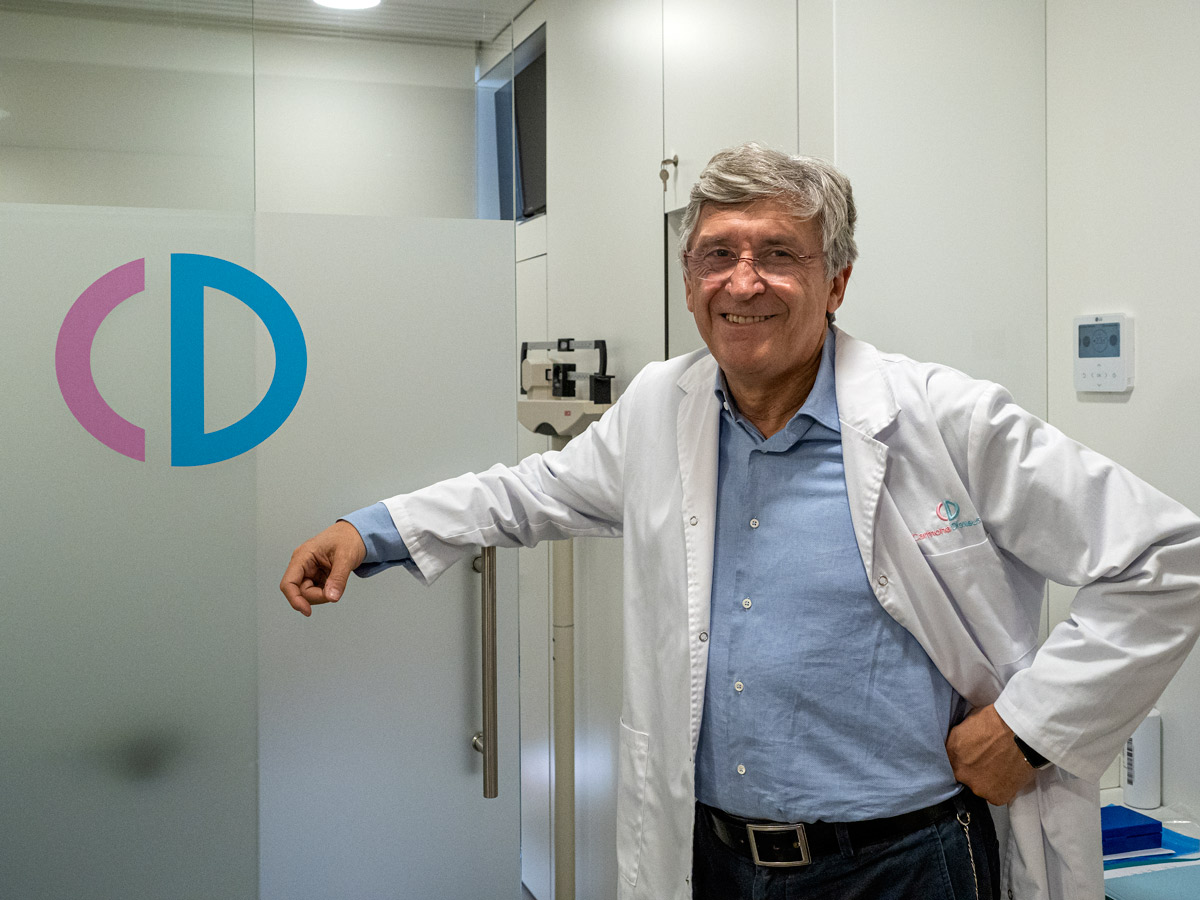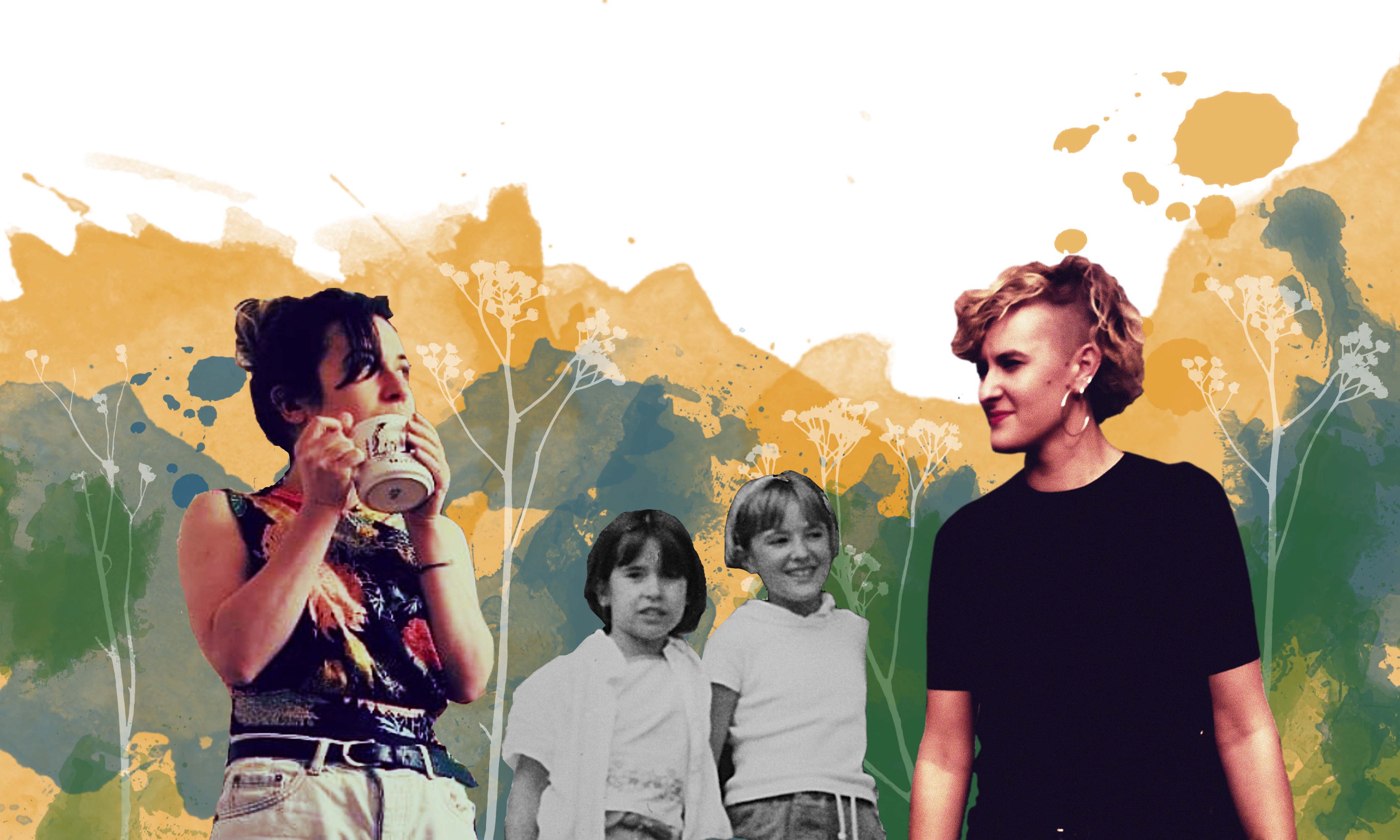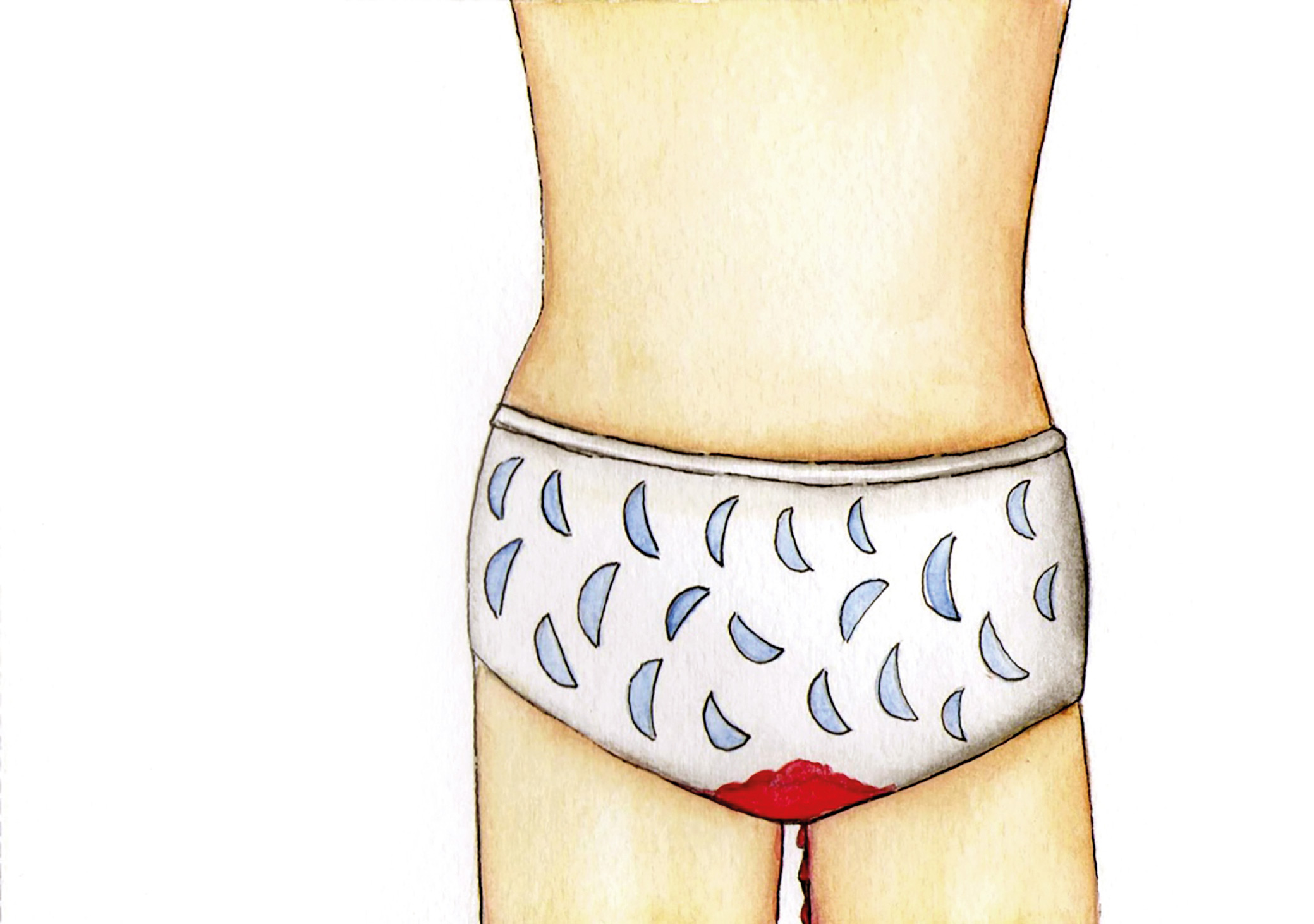"We have to combine the knowledge of the experiences with the biomedical experiences to drive the transformation"
- Graduated in Social Education, Bachelor in Pedagogy and Social and Cultural Anthropology and Doctor in Feminist and Gender Studies. She has just completed her doctoral thesis on alternative menstruation policies and cultures.

Antropologoa da, AFIT Antropologia Feminista Ikerketa taldeko partaide, eta Mugimendu Feministako kidea. EHUn irakasle ari da Balioen Filosofia eta Gizarte Antropologia Sailean.
Studies. Where did feminist anthropology come from?
I first studied Social Education. I was very interested in education and social intervention, had a very idealistic point of view, and I decided to study Pedagogy. I worked as I studied and I was lucky enough to work in different associations. First in Urtxintxa, then in Hik Hasi... It was a very important stage for me. All of this gave me a look, a way of understanding processes and teamwork... When I was older than me, I received a political culture that has later served me in work and life. I was very lucky. Feminism received it at home, at Elgoibar’s gaztetxe, we also started thinking and doing things about feminism, and I was also at Bilgune Feminist… So, when the Master’s Degree in Feminist and Gender Studies was created, I pointed to him. Although I had that desire before, that master's degree brought me closer to anthropology, and when I finished, I started studying anthropology and doing theses, both at the same time. I do everything at my pace and in my order.
And how did he choose the topic of menstruation?
I had a lot of issues in mind, but it was clear that I wanted to talk about power relations around medicine. In my environment I knew several experiences that marked me a lot, and with that I wanted to relate the thesis. I used to work on menstruation in a different way. Together with Mireia Delgado, in 2006 we created the collective No Spot, colouring and conducting menstruation workshops. But at that time, I didn't think menstruation could be a field of research. Mari Luz Esteban proposed to address the topic for the final master's work and encouraged me to do the thesis. So I got back to doing a thesis about the anthropology of health approaching the rule. I realized that menstruation allowed me to address very diverse issues.
How do you make a thesis about menstruation?
I have based myself on the anthropology of the body and the social theory of the body. The work of Mari Luzen is a reference in this field. One way of collecting my data has been to participate in different initiatives related to the rule. Workshops, performances, artistic installations, initiatives on technologies related to menstruation, related to literature... Some of them are spaces of trust, so I haven't used them as a data source, but I've used them to sharpen my eyes or to meet the people I've interviewed later. At different times I have interviewed 36 people to gather their experiences related to menstruation, who have participated in initiatives related to policies of the rule or alternative cultures. Among them there is a great diversity of profiles, but the truth is that to reach a workshop, exhibition, etc. each has had different experiences related to menstruation, gynecology, health or medicine, as well as different points of view. And those are the ones I've wanted to bring together. I also used self-ethnography as a methodological strategy to analyze the politicization and experiences of the theme. If I was researching if I was taking myself from my body, I also had to look at my own experiences.
The time has passed since I started to the end, because while I’ve been working on other projects… you know what it is eso.En these years the practices and speeches on this matter have changed a lot. That could be a problem methodologically in a while, but from a moment on, I thought I would look at that same change. Throughout the process I have interviewed several people at different times; and in the last year, to refine the trajectories of the ten people I have used to structure each chapter, I have re-interviewed these people, jointly analyzing their personal and social changes. It was a way of closing the cycle of my thesis not only in a formal sense, but also in an informal sense.
.jpg)
He has studied alternative initiatives related to the rule to look at the hegemonic ideology of menstruation.
Yes, I've looked at the alternatives to understand what's at issue. What is the hegemonic conception of menstruation. Tobacco is the vision we have had in the West over the past few centuries, which generates stigma. From the hegemonic point of view, it is something that must be hidden from the menstrual period, which must be regulated. Think about the blood flow that's so common, so present in our bodies and in the lives of so many people on the street, we see it very little anywhere. In a bathroom, for example. This is a reflection of the culture of denial. We are all very clear that you have to hide, clean, cover up the blood spills from menstruation. And that doesn't come out of nowhere. Some biology books from earlier centuries claim, for example, that the rule tends to be criminal in women.
In recent decades, menstrual literature has changed a lot in medicine and society, but nevertheless, the rule is looked at in a transverse and suspicious way. It is even looked at in a very specific and normative way. The cycle should last so many days, normal bleeding is so much… In a 28-day cycle, any situation that does not have a normal monthly emission is patented. If you bleed a long time, bad. Too short, too bad. Too much, too bad. Not enough, not bad. And of course, you only look at the rule on the days when there's bleeding. Otherwise it does not exist.
There have also been changes in society, and now it seems that talking about menstruation is fully normalized. But that's not the case. You can't say anywhere and time that you're with the rule. Menstrual ideology also appears in the academic world: Some do not see the rule as an object of investigation. Research on the rule is a secondary or tertiary research. But in anthropology, we know that from a small point you can look at the social system and the cultural system, and that the center defines the margins. The point is that both the edges and the center are always moving…
"Evax, Ausonia, and all of them are part of the same corporation and make huge profits at the expense of the mortuaries. Their goal is not to empower those who have no power.”
Where has he changed in that time when he made the thesis?
The issue has changed a great deal. In the ads, for example, the products that were sold before fueled that desire to help hide menstruation. Covering the smell. And today's people emulate a feminist discourse. Now you have to live the rule well. For sure. Still, with joy. But all of this is what we're asked to do without questioning at all why you feel embarrassed, why you experience it badly, or why we have pain. Because, of course, there are many pains that have not been investigated, that their origin is not known, that do not take care of... But hegemony has that advantage: it doesn't have to be coherent. There may be different rules in place, in contradiction, without cancelling each other. And you have to fill them all, though they can't be fulfilled at once. You can't empty your menstrual cup in the street because it's dirty, there's no trash can to throw compress in the bathroom and you have to put the dirty compress in your pocket, but at the same time you have to live your bleeding calmly and you can't stop doing things because you have a rule. Not in leisure or at work, of course.
And at the same time, they sell us awareness of our menstruation as an empowerment tool -- and,
of course, they offer us a very individual empowerment. A false empowerment that could be achieved through the consumption of products. I don't know how much it is to empower your well-being in that structure without changing structure. Ads instrumentalize feminist discourses to sell capitalism. Evax, Ausonia and all these corporations are part of the same corporation and each year they get huge profits at the expense of the mortuaries. And their goal is not, above all, to empower those who don't have power.
Within feminism there are also tendencies that present the rule as an instrument of empowerment.
There are different discourses around menstruation, also among the discourses of resistance to hegemony, and I think that diversity is interesting. I understand that for some people, becoming aware of the rule can be an exercise in empowerment. Making something visible that has forced us to keep secret is, in short, a transgression, and transgression is, to some extent, empowerment. Another thing is that perhaps not all forms are valid for everyone, for example, that the proclamation of menstruation as a collective instrument of identity empowerment, because it is not an instrument of liberation for all subjects. Because the rule is not a matter for all women, nor for women alone.
When I did the end of the master's degree job, I did interviews with several women and more than half of them did not have menstruation for different reasons. The more you research, the clearer you see that there is a huge diversity in our biological materiality. Because we only have the rule at a time of our life, to begin with. There are also reasons that may be of concern from the point of view of health in order not to have a rule. For example, stress. But in other cases the reasons are very different. It can be because you're pregnant, because you're breastfeeding, because you're practicing a lot of sport, because of the diversity that intersexuality can generate in hormones... You have to look at them, and that also gives us a lot of information about health, but the norm is not that rigid.
But the issue is much more complex. In addition to biological diversity, we have a lot of experiences, like trans bodies. This is another field of experience, like that of men with menstruation. This concealment and normativization of diversity must be problematized, and when it comes to building alternatives against hegemony, we have to take this diversity into account.
In general, he says that there is a great lack of knowledge about menstruation. Around the discomfort caused by menstruation, among others.
Yes. The rule is a good example of an androcentric bias in medicine and the lack of attention of many bodies when studying diseases. Research on the pain caused by menstruation is very scarce or, in general, about the processes that occur in the bodies of women. The rule has been researched when contraceptive methods or reproductive technologies have been researched, or for menstruation not to become a productivity problem, but not for people who die not to suffer pain.
And from this lack of knowledge, the discourses that occur around these pains can be dangerous. If we treat pain and change some of our customs, we can reduce some pain, that's right. But some speeches that are heard from time to time can generate a great sense of guilt about those in pain. “You don’t love yourself enough”… “You live in a conflict with your femininity”… I think we have to be careful with those messages. Mines can be of very different origins. There are also a lot of structural conditions. If I'm stressed, I'm precarious, I have two jobs, I don't have the ability to feed myself well, or if I'm forced to be completely still for a long time and I don't have time to exercise, or if I'm inside a house, the problem may not want me, the problem is that the system treads on me. The consequences of this positive thinking in our society also occur in this case. The readings should be brought to material conditions. Anyone who wishes to do so cannot do so. Not all of us have the same opportunities to live the rule well, to take care of health, or to have decent living conditions.
"Another androcentric trend is the universality of male bodies and, therefore, the invisibilization of female bodies. That's what happened with the vaccine."
We talk about menstrual justice… Beyond everyone
living their menstruation better, we must also look at the rule from the social point of view. Because you can decide to use the glass so as not to pollute the planet. All right. But at the same time we have to bear in mind that there are women who live in jail, on the street or in other difficult situations, who do not have access to the rule management. Or we can criticize medicalization, but many deadly bodies can't get medicine. Policies need to be influenced. Achieving menstrual justice would be that the precarious cis, the evicted, the undocumented, the trans mortal men, or the bodies in the most difficult conditions of this capitalist society would have conditions worthy of living menstruation, whatever their kind of menstruation. The same is true of food, or any other field of research, which can be a tool to reflect on our society.

Another issue highlighted by COVID-19 is the lack of consideration of the incidence of the vaccine in menstruation.
Yes, data has shown that the COVID-19 vaccine in several people has produced changes in menstruation. There is very little research on this; for example, research is being conducted at the University of Granada and in some places in the United States. Because the tradition of the biomedical system is androcentric, as well as capacitist, classicist and racist. A typical androcentric medical tendency is to understand in opposition the body of men and women, to seek differences only between one body and another, and to understand the bodies of women closely linked to the reproductive system. Focus your gaze on sexual reproduction instead of looking at other things. And this leads us to understand in a reductionist way the bodies that are understood as women. And another androcentric trend is the universality of male bodies and, therefore, the invisibilization of female bodies. That's what's happened with the vaccine.
Menstruation itself is an extraordinarily powerful research tool and is not used. Menstruation can be an indicator of many other things and a very useful source of information. From the analysis of the spilled blood you can extract very rich information, such as hormones. But it's hardly used for endocrinological research.
In the face of this ignorance, you assert hybrid spaces of knowledge in your thesis.
Yes. I have known many initiatives in the study of the thesis. Exhibitions, collective theft of compresses, workshops to make tampons, conferences, works of art, performances… In them there is a great knowledge. In the context of Euskal Herria, these initiatives are developed in very different spaces. In the homes of women, in the schools of empowerment, in the youth centers, in the field of sociology... There are many actors, and in the same place you can find very different people, practices and speeches. That's very interesting. In these spaces, from the experience itself, dialogues are produced between different points of view, which are tools to generate collective knowledge. However, these places are not considered as spaces of knowledge.
We have to think about what place we give in our society, in academic circles, to knowledge and to whom we do not. The knowledge is held by the academy, by the doctors, by the gynecologists... That is authority. And they also have enormous knowledge, of course. We also need knowledge and ways of doing in the academic or health field, but we also need to find hybrid places where the knowledge of people with menstruation is also taken into account. We must combine the knowledge associated with the experiences with biomedical knowledge to really drive the transformation, affecting public health and the system. For menstruation not to be an obstacle to living well, for anyone, but an opportunity for health.
Imagine that in some association of this kind, a newly incorporated girl naively proposes to put herself in the bathroom, just like the toilet paper, pads or tampax. And that the member who takes care of toilet paper is totally affected by the question of whether the compress... [+]
Odola dario literaturari artikuluan euskal literaturan hilekoak bete izan duen tokiari erreparatu genion, aztertzeko nola irudikatua izan den. Artikulu haren segida da honakoa, baina fokua pixka bat zabalduta: testuaz gain irudiak ere barne hartzen dituzten lanei erreparatuko... [+]
- You come, aunt? “The swimsuit in the dress asked me and the floats with flowers in their arms.
- Yeah. I have to spend some time in the bathroom and I kindly answer him.
- I'll help you! “We went up the stairs.
I got the dress. Blur. Sit down the toilet. My nephew... [+]







